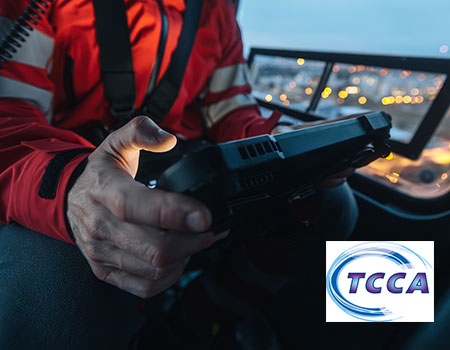By Nina Myren, Chair, TCCA Legal and Regulatory Working Group
First published June 2024, in Highlights Issue 08
During the last decade, 3GPP has included the requirements for mission critical communication as part of the 4G/5G standards making the mobile broadband services available for PPDR (Public Protection and Disaster Relief) users. These users can therefore take part in further technological development driven through the 3GPP standardisation work.
These users expect their communication services to be secure and available - everywhere and always. Broadband mission critical communication will to a larger degree than narrowband rely on commercial Mobile Network Operators (MNO) services and infrastructure. Implementation of the Quality of Service, Priority and Pre-Emption (QPP) mechanisms are needed to secure the PPDR users' service access in the commercial networks in cases of congestion.
While standards, technology and products for mission critical communication have become available, the regulation in this area appears to be lagging behind. There is no EU-level legislation requiring MNOs to prioritise critical communication for emergency services. This needs to be addressed. The implementation of the QPP prioritisation mechanisms seem to be in conflict with the European Union regulation on open internet access (2015/2120)[1]. National exemptions are needed, as made in countries like Finland, France and Belgium. In TCCA’s white paper ‘Legal and Regulatory aspects regarding the realisation of Quality of Service, Priority and Pre-emption (QPP) in commercial networks’[2], TCCA's Legal and Regulatory Working Group has revealed that both the interpretation of the European regulations and the practical implementation of the QPP may differ from country to country. TCCA therefore recommends a general exemption for PPDR operators from the EU regulation.
The planned EU Critical Communication System (EUCCS)[3] for cross border operability, will require a harmonised approach to the implementation of mission critical broadband services to facilitate seamless international operations. Emergency services crossing borders or supporting colleagues in a visiting country need access to the mission critical services in the visiting network. A harmonised approach to QPP will be a key building block in the EUCCS, from both a regulatory and technical point of view.
Requirements and solutions for mission critical roaming is currently being looked at in a joint GSMA/TCCA/BroadEU.net task force. How seamless roaming with QPP and Access Class Barring can best be implemented is to be proposed by the task force.
The EUCCS could be the enabler for wider EU-level legislation on mission critical communication. Looking at the common European Emergency Number ‘112’, it is highly regulated, also with respect to priority and not least interoperability. It is essential for the whole value chain of emergency management that both emergency communication and mission critical communication are always reliable and always available.
As EUCCS is a "system of systems"- concept interoperability will be of utmost importance. Technical and operational trials are funded by the European commission (EC) through the BroadEU.net program, while the EC-led Mission Critical Communication Expert Group (MCCG) is looking at governance and policies[4].
For cross border communication initiatives like EUCCS interoperability is needed between national systems. But interoperability is also crucial in national systems, from day one and over the lifetime. The way to go is to make sure procured products and services are following the 3GPP standard for mission critical services.
We need sustainable test and certification processes for mission critical products and services. TCCA is working together with the Global Certification Forum (GCF) to establish processes to provide certification on MCX 3GPP standard conformance and in a later stage, on interoperability. TCCA will also provide guidance to those procuring products and services through its procurement model text library. We encourage all government agencies and others procuring MCX products and services to have specific requirements for testing and certification in the contract. For early movers it may be tempting and perhaps even necessary to accept non-certified products, e.g. the test and certification process may not yet be available. In this situation TCCA recommends contract requirements where the supplier shall proactively contribute to the process and seek certification as soon as it is available.
Common requirements that drive vendors to seek certification will help establishing a global, interoperable deployment of mission critical communications systems based on 3GPP MCX standards. The European initiative may as well be an accelerator in this respect.
Nina Myren is TCCA’s Board director representing DSB Norway.
[1] https://eur-lex.europa.eu/eli/reg/2015/2120/oj
[2] https://tcca.info/documents/September-23_LRWG_QPP_whitepaper.pdf/
[3] The EUCCS shall connect communication networks of all public law enforcement, civil protection and safety responders in Europe by 2030 to allow for seamless critical communication and operational mobility across the Schengen area. See European Commission, White Paper on how to master Europe's digital infrastructure needs, COM(2024) 81 final of 21.2.2024, page 17.
[4] Further information on BroadEU.net and MCCG can be found in www.broadeu.net


 Partners News
Partners News 




